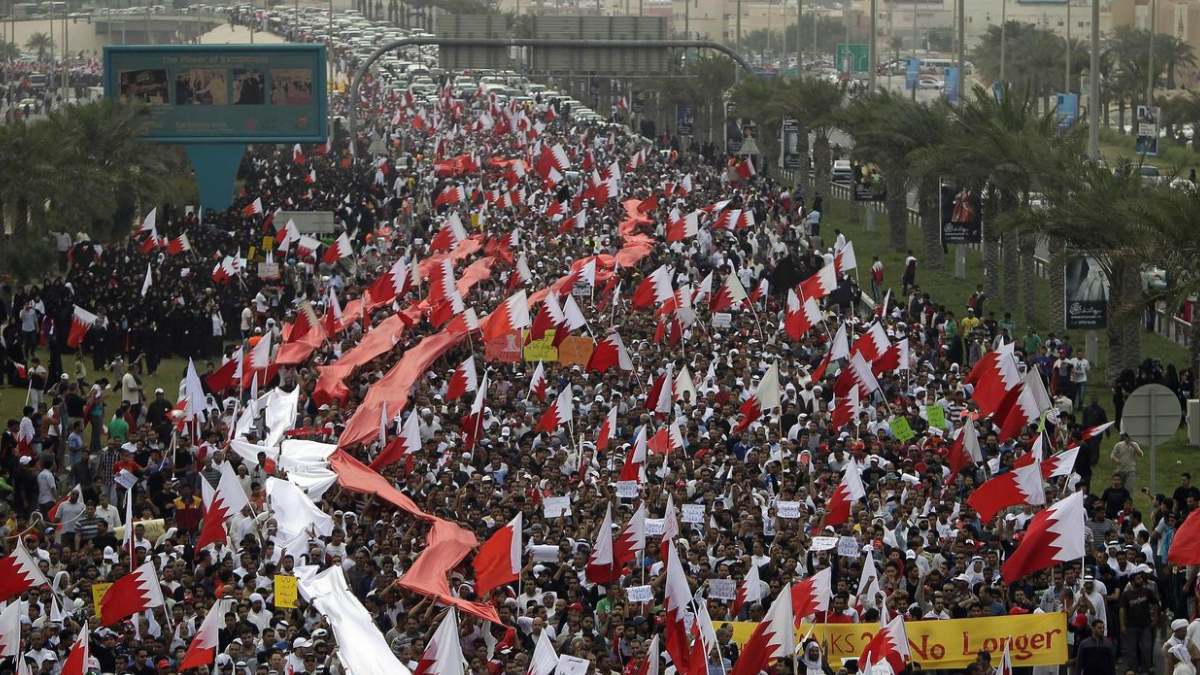Bahrain is grappling with a severe human rights crisis as the nation witnesses its largest-ever prison protest. Over 800 prisoners, representing more than half the prison population, have embarked on a hunger strike.
Bahrain, with a population of 1.5 million, boasts one of the highest incarceration rates per capita in the Middle East. Approximately 3,800 individuals are incarcerated, with an estimated 1,200 of them deemed prisoners of conscience by Bird.
The high number of political prisoners in Bahrain is primarily concentrated in Jau prison. Former inmates, like Alwadaei, highlight the separate and often harsh treatment meted out to political prisoners.
Why is there a Hunger Strike in Bahrain’s Prison?
This drastic action is attributed to years of alleged abuse and neglect within the penal system. The protest began on August 7, 2023, inside a Bahraini prison primarily used for detainees of conscience. Initially, around 500 prisoners refused food, protesting against the deplorable conditions of their detention. Since then, the hunger strike has garnered increased participation.
Prisoners have claimed the denial of medical treatment, punitive solitary confinement, and abuse are widespread within Bahraini prisons. Ahmed Jaafar Mohamed Ali, a dissident extradited from Serbia to Bahrain, joined the hunger strike after reportedly enduring mistreatment, including pepper spraying and solitary confinement.
Sayed Alwadaei, a former inmate at Jau prison and spokesperson for the Bahrain Institute for Rights and Democracy (Bird), described the hunger strike as one of the most significant and overwhelming demonstrations of dissent within the Bahraini prison system.
Among those participating in the hunger strike is prominent human rights defender Abdulhadi Al Khawaja. His daughter, Maryam, intends to return to Bahrain despite personal risks to draw attention to her father’s case and the ongoing protests.
Prisoners’ Demands for Improved Conditions and Rights
The hunger strike, as conveyed through a statement released by inmates and facilitated by the outlawed Al-Wefaq opposition party, is underpinned by a set of demands. These demands include:
- Increased time outside their cells, currently restricted to just one hour a day.
- Permission for congregational prayers at the prison mosque.
- Revisions to constraints on family visits.
- Enhanced educational facilities.
- Access to proper medical care.
Bahrain’s Response and International Scrutiny
Bahrain’s government asserts its commitment to protecting human rights and maintaining international standards within its correctional facilities. The nation’s communication center emphasized that no prisoners of conscience are held within its system. The ombudsman’s office of Bahrain’s interior ministry conducted investigations to ensure inmates’ rights were upheld.
Maryam al-Khawaja pointed out international involvement in Bahrain, including support from countries like Britain. The UK’s prime minister, Rishi Sunak, met Bahrain’s Crown Prince in July, and the UK increased funding to Bahrain’s interior ministry and security entities through the Gulf strategy fund.
Also Read: Kuwait’s Economy is at Risk due to Political Instability
The hunger strike and the deteriorating conditions within Bahrain’s prisons have garnered global attention, highlighting the urgent need for reforms and international scrutiny of the nation’s human rights practices.






















